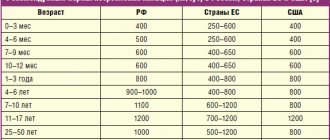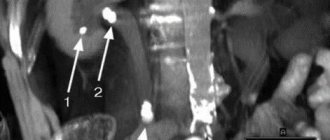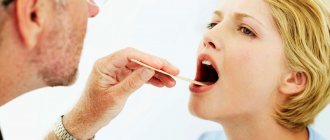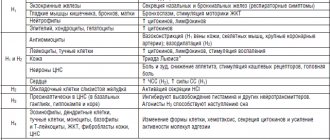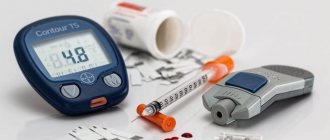Diarrhea
(scientific name
diarrhea
) is a pathological condition in which frequent bowel movements are observed, and the stool becomes liquefied (from mushy to watery). The stool may contain particles of mucus, pus, undigested food and even blood, have a pungent odor and an unusual color.
In a newborn baby who is breastfed, the frequency of bowel movements on average corresponds to the number of feedings (up to 6 times a day). Gradually, the frequency of stool decreases and by 6 months it stabilizes at the level of one or two times a day. Similar regularity in bowel function is typical for an adult. Deviations in one direction or another can be considered as bowel disorders.
Prolonged or severe diarrhea is dangerous to health, as it threatens dehydration.
What is diarrhea?
The main sign that we are not talking about episodic diarrhea, but about a full-fledged disorder, is the daily frequency of stool. Diarrhea is loose stool that occurs in paroxysms: three times a day or more often. At the same time, the water content in feces, normally 50-80%, increases to 95%1.
Diarrhea can be acute or chronic.
Acute form
(up to 14 days) may appear as a result of poisoning, eating allergenic foods2, intolerance to certain foods, medications, or the entry of certain viruses and bacteria into the body2.
Chronic
(from a month or more) - as a result of taking antibiotics, laxatives. The cause may also be certain diseases of the gastrointestinal tract2.
The second most important sign is the condition of the stool. Color, consistency and the presence of impurities may indicate various diseases. For example, watery and loose stools, as well as a greenish tint to the stool, indicate the development of an intestinal infection. The cause of loose stools that are light in color and clayey in appearance may be damage to the small intestine and its initial sections.
Dehydration
The most significant threat posed by diarrhea is dehydration or dehydration. During diarrhea, water and electrolytes (sodium, chlorine, potassium and bicarbonate) are eliminated from the body through loose stools, vomiting, sweat, urine and breath. Dehydration occurs if these losses are not replaced.
There are three degrees of dehydration.
- Severe dehydration (at least two of the following):
- lethargy/unconsciousness;
- sunken eyes;
- the patient cannot drink or drinks poorly;
- after pinching, the skin very slowly (≥2 seconds) returns to its original state.
- restless behavior, irritability;
- sunken eyes;
- the patient drinks greedily, feels thirsty.
Causes of loose stools
Episodes of loose stools that plague a person for one or several days are not a separate disease. This is just one symptom of functional, organic or neural dysfunction. Loose stools that persist for a long time may be accompanied by other clinical manifestations: abdominal pain and cramps, fever, chills, nausea, vomiting, dizziness. It is on the basis of a set of symptoms that one can most accurately determine the cause of loose stools.
The most common causes of diarrhea in adults are3:
- food allergies;
- lactose intolerance (almost instantaneous reaction to milk);
- intestinal infection;
- viral or bacterial infection;
- neurogenic factor (stress, neurotic disorders, emotional breakdowns).
Loose stools may also indicate pathologies of other organs, such as4:
- cystic fibrosis (a hereditary disease that affects a number of organs, from the liver to the gonads);
- pancreatitis (a group of diseases associated with inflammation of the pancreas);
- gastritis with secretion deficiency;
- oncological diseases;
- adrenal insufficiency;
- diabetes;
- hyperthyroidism (a syndrome caused by increased hormonal activity of the thyroid gland);
- cirrhosis of the liver;
- hepatitis;
- metabolic kidney diseases;
- hypovitaminosis (metabolic diarrhea).
Survey
Watery diarrhea always indicates problems with the digestive system. A gastroenterologist or infectious disease specialist examines patients with complaints of watery diarrhea. To verify the clinical diagnosis, a comprehensive examination of the gastrointestinal tract is necessary using laboratory and instrumental methods to detect morphological changes and establish the cause of diarrhea. The most valuable in diagnostic terms are:
- Radiography
. Using plain radiography of the abdominal cavity, the condition of the patient's gastrointestinal tract is quickly assessed. For a detailed study of the inner surface of the digestive tract, oral contrast with barium sulfate is used. The method is quite informative in detecting non-infectious processes that cause watery stools. - Ultrasonography
. A non-invasive examination method is used as a screening diagnosis to exclude severe organic diseases of the digestive system and neoplasms. An abdominal ultrasound can reveal signs of an inflammatory process. Sonography is also performed to assess the condition of the pancreas. - Stool analysis
. To study the processes of digestion and absorption of food, a microscopic examination of feces is carried out with pH measurements. Watery diarrhea is often caused by infectious processes, so all patients undergo bacteriological culture of stool and analysis for helminth eggs. To exclude ulcerative destructive processes, the Gregersen reaction is indicated. - Serological reactions
. Searching for antimicrobial antibodies or specific antigens in the blood is the most accurate way to determine various infectious diseases, especially viral ones. The study may not be sufficiently informative in the first few days from the onset of the disease, when the concentration of antibodies in the blood has not yet increased.
As an additional general clinical method, a biochemical blood test is used to help determine the degree of malabsorption and protein deficiency. If specific lesions of the gastrointestinal tract wall are suspected, endoscopic examination with biopsy is recommended. To assess the exocrine function of the pancreas, a blood test for amylase and lipase is sometimes prescribed.
Adsorbents are used to reduce the frequency of watery diarrhea
Treatment of loose stools: how to get rid of the problem
If frequent loose stools bother you for a long time, then most likely its causes lie in a serious imbalance and require immediate treatment. Unlike one-time diarrhea, systematic diarrhea implies complex treatment, which includes not only eliminating symptoms, but also addressing the underlying causes of the syndrome.
Infectious diarrhea
Treatment depends on the form of infectious diarrhea. In mild cases, home therapy is quite possible, including diet, drinking plenty of fluids and taking adsorbent drugs. A severe form of gastroenteric diarrhea requires hospitalization with a whole range of emergency procedures and restorative therapy, which consists of restoring the lost fluid balance and following a diet.
Functional diarrhea
Occurs in disorders of the digestive or nervous system. There are no organic changes in the gastrointestinal tract, and therefore the main treatment in this case is symptomatic. If it is possible to remove the causes of a nervous disorder or irritable bowel, then loose stools may go away within one or two days5.
Watery diarrhea (“water diarrhea”)
Its causes can be both bacterial and viral infections. The most severe of them, of course, is cholera, but salmonellosis and acute intestinal infections of viral etiology are much more common. The small intestine is affected by pathogen toxins, this is accompanied by the release of large amounts of water and salts dissolved in it into the intestinal lumen (stool may resemble “rice water”), without adequate replenishment of electrolytes, fatal dehydration can occur. Requires hospitalization in a specialized hospital (intestinal infections department).
Self-diagnosis and treatment are unacceptable. Diarrhea due to intestinal infections may not always be accompanied by nausea, vomiting, abdominal pain and fever (in weakened patients, as well as in the terminal stages of cholera, body temperature may drop below normal); treatment directly depends on the type of causative agent of the disease, which is impossible to determine at home.
Diet is a reliable assistant in the treatment of diarrhea
Treatment of diarrhea resulting from poor diet or malnutrition, as well as disruptions in the gastrointestinal tract, is impossible without proper nutritional correction.
If you adhere to the basic principles of a diet for diarrhea, the problem can be solved much faster, and at the same time will serve as a prevention of possible intestinal dysfunction.
Here are some simple diet rules for diarrhea:
- the load on the digestive organs during diarrhea should be minimal (food should be consumed crushed and boiled);
- You should eat foods high in pectin, potassium and protein, for example, bananas, applesauce, fruit juices, bananas, beef, turkey, chicken.
- in the first days you should eat only liquid food and gradually switch to your usual diet, introducing foods as the frequency of loose stools decreases6;
- food intake should be fractional, in small portions 5-6 times a day.
It is important to remember that prolonged, exhausting loose stools are a reason for immediate consultation with a specialist.
Symptomatic therapy
Diet correction is required. In case of an acute disorder, a starvation diet is indicated with the gradual introduction of rice dishes, products containing pectins, salted soups, broths, dietary protein foods (veal, turkey, chicken, hard-boiled eggs). Diarrhea with water causes a significant amount of fluid to be lost, so if the patient's condition is satisfactory, it is important to ensure that the patient drinks plenty of fluids to prevent severe dehydration.
Until the exact cause of stool disorders is determined, adsorbents, astringents and enveloping agents are used to reduce the frequency of watery diarrhea. Under no circumstances should you take medications that inhibit intestinal motility, as this can increase intoxication and lead to a deterioration in the patient’s condition. Antibacterial agents and antidiarrheal drugs are selected only by a doctor, taking into account the results of the examination and the sensitivity of pathogenic microorganisms.
Eating habits
Below are some of the most common causes of diarrhea related to eating habits:
- fast pace of eating. Only 20 minutes after eating, the stomach sends a signal to the brain that you are full. Therefore, if you eat at a fast pace, you risk overeating and creating extra stress on your stomach.
- fast swallowing of food. When swallowed quickly, in addition to food, air also enters the stomach, which can cause flatulence and poor digestion.
- eating heavy food in large portions. The body needs more time to digest such foods and dishes, and the digestive system has to work harder.
- late meal. In the evening, your digestive system works with minimal efficiency (the speed slows down, the kidneys and other organs begin to rest).
Up to contents
WHO activities
WHO works with Member States and other partners on the following:
- promoting national policies and investments that support the management of diarrhea and its complications, and increasing access to safe drinking water and sanitation in developing countries;
- conducting research to develop and test new strategies for delivering health services in this area;
- building capacity for preventive interventions, including sanitation, improved water sources, and household water treatment and safe storage;
- developing new health interventions such as immunization against rotavirus;
- Promoting the training of health workers, especially at the community level.
Food and drinks
We are all different. For some people, a certain product can cause diarrhea, while others tolerate it well and even use it as a sedative. It is worth mentioning here some foods and dishes that, as a rule, can cause diarrhea:
- alcohol. Your favorite wine or any other alcoholic drink can cause stomach irritation. Drinks have different effects on the human body, so you should determine which ones are not suitable for you and avoid drinking them.
- spicy food. Recent research suggests that fatty and spicy foods, such as Chinese and Indian cuisine, may cause stomach pain in those suffering from irritable bowel syndrome. Experts believe that this is due to the complex substances that make up chili peppers.
- fried and fatty foods. When such foods are digested and processed, natural gastrointestinal contractions become more intense, which can worsen diarrhea symptoms.
- excess fruits or vegetables. Excessive consumption of prunes, kiwi, legumes, broccoli or cabbage can cause diarrhea in some people.
- dairy products. Milk, cheese, sour cream, and other dairy products can cause diarrhea in some people. Replace them with non-dairy products, such as almonds or soy milk.
- Coffee and tea. Caffeine is considered a trigger factor for many people suffering from digestive disorders. Try to limit the amount of drinks you consume that contain it and replace them with herbal tea.
- sweeteners. Artificial sweeteners such as sorbitol and fructose, which are found in diet drinks, sweets and chewing gum, can cause diarrhea in part because they are poorly absorbed by the small intestine. Look at the ingredients on the packaging and try to choose natural substitutes.
Remember that symptoms of diarrhea are caused not only by the foods you consumed today, but also by those that entered your body yesterday. Also, the cause of diarrhea may be the size of the portion and how quickly and at what time you eat your food.
Up to contents
Undesirable foods for diarrhea
It is recommended not to eat fresh fruit if you have diarrhea.
The main goal of the antidiarrheal diet is to unload the intestines. The colon is especially vulnerable to inflammatory and infectious diseases, so it is necessary to avoid eating too heavy foods.
Certain foods can make diarrhea significantly worse. These include:
- Milk and dairy products (even with lactose substitutes).
- Fried, fatty and salty foods.
- Spices and hot sauces.
- Semi-finished products, especially with the addition of flavor enhancers.
- Pork and veal.
- Raw vegetables.
- Most confectionery products.
- Onion and garlic.
- Corn.
- Citrus fruit.
- Pineapples, cherries, wild berries, figs, currants and grapes.
- Alcoholic and coffee drinks.
- Carbonated drinks.
- Products with artificial sweeteners (especially sorbitol).
Many of the listed products, such as alcohol, carbonated drinks and coffee, can be even completely eliminated from the diet if you have intestinal disorders.

